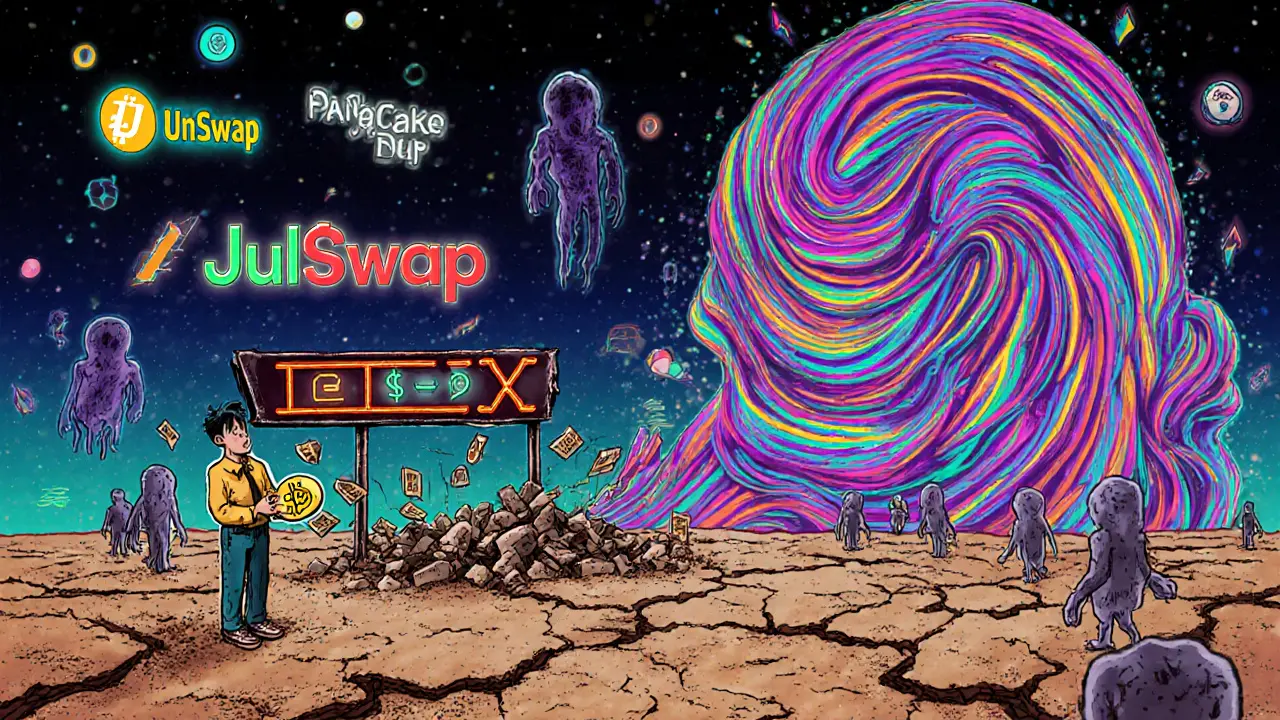JulSwap Crypto Exchange: What It Is, How It Works, and What You Need to Know
When you hear JulSwap, a decentralized exchange built on the Solana blockchain that lets users swap tokens without intermediaries. It's one of many DeFi trading platforms trying to win users with speed and low fees—but not all of them deliver. Unlike centralized exchanges like Binance or Bybit, JulSwap doesn’t hold your keys. You trade directly from your wallet, which means no account sign-up, no KYC, and no third party to freeze your funds. But that freedom comes with trade-offs: no customer support, no chargebacks, and no safety net if you make a mistake.
JulSwap runs on Solana, a high-performance blockchain known for sub-second transaction times and fees under a penny. This makes it a natural fit for traders who hate waiting for confirmations or paying $50 in gas to swap a few tokens. Compare that to Ethereum-based DEXs like Uniswap, where fees can spike during busy periods. JulSwap’s architecture lets it handle thousands of trades per second, something most other DEXs can’t match. But speed isn’t everything. If a project’s token isn’t listed on JulSwap, you won’t find it there. And if the liquidity is thin, your trade might slip badly—meaning you pay more than you expected.
What’s missing from JulSwap? A strong user base. Unlike PancakeSwap on BSC or Uniswap on Ethereum, JulSwap doesn’t have millions of daily users. That means fewer trading pairs, less depth, and more risk of price manipulation. It’s not a place to trade large amounts. It’s a tool for experimenting with new Solana-based tokens, testing small positions, or swapping tokens you can’t find elsewhere. If you’re looking for a reliable exchange to hold your main portfolio, JulSwap isn’t it. But if you’re diving into the wild west of Solana DeFi and want to try something new without leaving the chain, it’s worth a look.
You’ll find posts here that dig into similar platforms—like Saros Finance, DeGate, and Koinde—each with their own strengths and red flags. Some are backed by real teams. Others are barely alive. Some offer real utility. Most don’t. The goal isn’t to tell you which exchange is the best. It’s to help you spot the difference between a working tool and a dead project hiding behind flashy graphics. What matters isn’t the name on the homepage. It’s who’s behind it, how much liquidity is real, and whether anyone’s actually using it.
JulSwap Crypto Exchange Review: Is It Still Worth Using in 2025?
JulSwap is a dying decentralized exchange with shallow liquidity, negligible token rewards, and no development activity. In 2025, it's not worth using for any serious trading or staking. Avoid it in favor of Uniswap or PancakeSwap.
